 W
WCaptain Roland Dudley Kitson, 3rd Baron Airedale, businessman, was born in Leeds, son of Sir James Kitson, 1st Baron Airedale and his second wife, Mary Laura, daughter of Edward Fisher Smith. Roland's elder half-brother was Albert Kitson, 2nd Baron Airedale.
 W
WGeneral Sir James Edward Alexander was a Scottish traveller, author and soldier in the British Army.
 W
WLieutenant General Sir Edric Montague Bastyan, was a senior British Army officer, who became Governor of South Australia from 4 April 1961 until 1 June 1968 then Governor of Tasmania from 2 December 1968 until 30 November 1973. He was the last British person to be governor of either state.
 W
WMajor William Booth was a cricketer who played for Yorkshire County Cricket Club between 1908 and 1914, a season in which he was named one of the Wisden Cricketers of the Year.
 W
WMajor General Edward Braddock was a British officer and commander-in-chief for the Thirteen Colonies during the start of the French and Indian War (1754–1763), the North American front of what is known in Europe and Canada as the Seven Years' War (1756–1763).
 W
WColonel Sir Thomas Robert Gore Browne, was a British colonial administrator, who was Governor of St Helena, Governor of New Zealand, Governor of Tasmania and Governor of Bermuda.
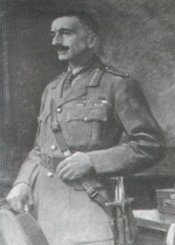 W
WBrigadier-General Edmund William Costello, VC, CMG, CVO, DSO was a British Indian Army officer and a recipient of the Victoria Cross, the highest and most prestigious award for gallantry in the face of the enemy that can be awarded to British and Commonwealth forces.
 W
WMajor-General Sir Francis Wilfred "Freddie" de Guingand,, was a British Army officer who served as Field Marshal Sir Bernard Montgomery's chief of staff from the Second Battle of El Alamein until the end of the war. He played an important diplomatic role in sustaining relations between the notoriously difficult Montgomery and his peers and superiors.
 W
WSir Cyril John Deverell was a British Army Field Marshal, who served as Chief of the Imperial General Staff from 1936 to 1937. He fought in the Fourth Anglo-Ashanti War and the First World War and later advised the Government on the importance of maintaining the capability to mount an Expeditionary Force for operations on mainland Europe.
 W
WLieutenant-General Sir Charles William Doyle, GCH, CB was a British Army officer who served during the Napoleonic Wars.
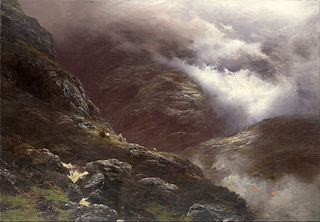 W
WRobert Duncanson, 1658 to May 1705, was a Scottish professional soldier from Inveraray; a retainer of the Earl of Argyll, he began his career during the 1685 Argyll's Rising, and is now best remembered for his involvement in the February 1692 Glencoe massacre.
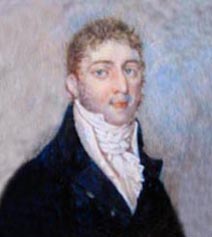 W
WFrancis Perceval Eliot was an English soldier, auditor, and man of letters. In 1814 he succeeded his half-brother as Count Eliot, however he did not feel it was proper to assume the title.
 W
WGeneral Sir Richard England, was a British Army officer, born at Detroit, which was then part of Upper Canada. During the Napoleonic Wars he saw active service in Walcheren, Sicily, and at Waterloo, before commanding regiments and divisions in the Crimean War and in India.
 W
WFrederick Luther Fane, played cricket for the England cricket team in 14 Test matches. He also played for Essex, Oxford University and London County.
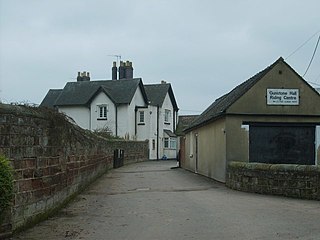 W
WLieutenant General Thomas Fowke, also spelt Foulks, circa 1690 to 29 March 1765, was a British military officer of the 18th century. He was Governor of Gibraltar from 1753 to 1756, and twice court-martialled during his service.
 W
WGeneral Sir Harold Edmund Franklyn was a British Army officer who fought in both World War I and World War II. He is most notable during World War II for his command of the 5th Infantry Division during the Battle of France in May/June 1940.
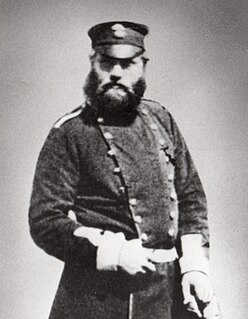 W
WMajor-General Frederick Hammersley was a British Army officer who after serving in the Crimean War was at the forefront in developing an exercise regime for the British Army leading to him becoming the first Inspector of Gymnasia and being known as ‘The Father of Army Gymnastics’.
 W
WPeregrine Thomas Hopson was a British army officer who commanded the 40th Regiment of Foot and saw extensive service during the eighteenth century and rose to the rank of Major General. He also served as British commander in Louisbourg during the British occupation between 1746–1749, then became Governor of Nova Scotia and later led a major expedition to the West Indies during the Seven Years' War during which he died.
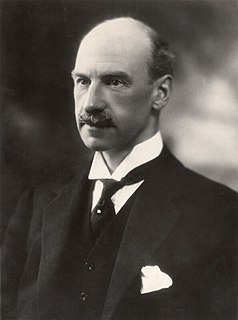 W
WSir Francis Stanley Jackson, known as the Honourable Stanley Jackson during his playing career, was an English cricketer, soldier and Conservative Party politician. He played in 20 Test matches for the England cricket team between 1893 and 1905.
 W
WLieutenant-General Sir Frederick Walter Kitchener, known as Walter Kitchener, was a British soldier and colonial administrator.
 W
WMajor-General Stringer Lawrence was an English soldier, the first Commander-in-Chief, India
 W
WEvelyn Henry Lintott was an English footballer who joined the British Army and died during the First World War. He played as a half back for Plymouth Argyle and Queens Park Rangers in the Southern League, and Bradford City and Leeds City in the Football League. Lintott was capped seven times by the England national team after becoming a professional player, and he also made five appearances for the amateur side. He was killed in action on the first day on the Somme, the opening day of the Battle of Albert.
 W
WColonel Conwyn Mansel-Jones was an English British Army officer. He was a recipient of the Victoria Cross, the highest and most prestigious award for gallantry in the face of the enemy that can be awarded to British and Commonwealth forces.
 W
WSamuel Meekosha VC, who changed his name by deed poll to Samuel Ingham in 1942, was an English recipient of the Victoria Cross, the highest and most prestigious award for gallantry in the face of the enemy that can be awarded to British and Commonwealth forces.
 W
WColonel Richard Meinertzhagen, CBE, DSO was a British soldier, intelligence officer, and ornithologist. He had a decorated military career spanning Africa and the Middle East. He was credited with creating and executing the Haversack Ruse in October 1917, during the Sinai and Palestine Campaign of the First World War, but his participation in this matter has since been thoroughly refuted.
 W
WJames Gabriel Montresor was a British military engineer.
 W
WLieutenant General Sir Jasper Nicolls KCB was Commander-in-Chief, India.
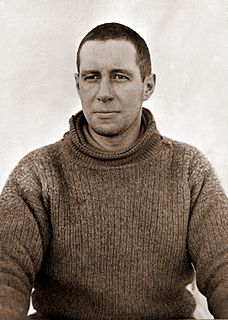 W
WCaptain Lawrence Edward Grace "Titus" Oates was a British army officer, and later an Antarctic explorer, who died during the Terra Nova Expedition when he walked from his tent into a blizzard. His death, which occurred on his 32nd birthday, is seen as an act of self-sacrifice when, aware that the gangrene and frostbite from which he was suffering was compromising his three companions' chances of survival, he chose certain death for himself in order to relieve them of the burden of caring for him.
 W
WWilliam Edward Parsons, 5th Earl of Rosse was an Irish peer and British Army officer. He was known as Lord Oxmantown until 1908.
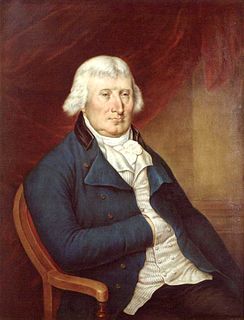 W
WPeter Russell was a British military officer in the American War of Independence and a government official, politician and judge in Upper Canada.
 W
WSir William Russell Russell was a New Zealand politician from 1870 to 1905. He was a cabinet minister, and was recognised as Leader of the Opposition from 1894 to 1901. Though considered by other politicians to have little sympathy with working people as a major landowner his panache and involvement in local affairs led him to be liked and admired by Hawkes Bay's élite.
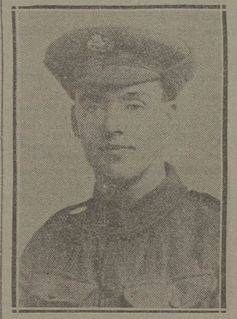 W
WGeorge Sanders VC MC was an English recipient of the Victoria Cross, the highest and most prestigious award for gallantry in the face of the enemy that can be awarded to British and Commonwealth forces.
 W
WCornelius Smelt was an administrator who served as Lieutenant Governor of the Isle of Man from 1805 until his death in 1832, the longest governorship in the history of the Island. An officer in the British Army, he served first with the 14th Regiment of Foot and then the 35th Regiment of Foot, acting as Deputy Governor of Southsea Castle in the late 18th century. His governorship of the Isle of Man is remembered as one in which he displayed great moral courage in difficult circumstances. His wisdom and fortitude in the long period when the House of Keys and the Duke of Atholl fought their historic political battles were also evident. Upon his death, a memorial was erected in Castletown in the Isle of Man.
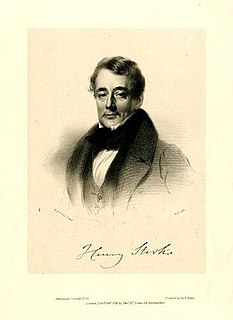 W
WLieutenant General Sir Henry Knight Storks was a British soldier and colonial governor.
 W
WGeorge Waldegrave, 4th Earl Waldegrave, Viscount Chewton, PC, ADC was a British politician who sat in the House of Commons from 1774 to 1780.
 W
WLieutenant-General Sir Herbert Edward Watts was a British Army officer who commanded 7th Division and later XIX Corps during the First World War.
 W
WWilliam Basil Weston was an English recipient of the Victoria Cross, the highest and most prestigious award for gallantry in the face of the enemy that can be awarded to British and Commonwealth forces.
 W
WJohn Whitelocke was a British Army officer.
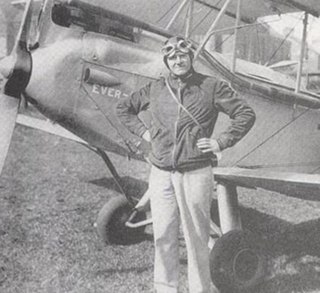 W
WMaurice Wilson MC was a British soldier, mystic, mountaineer and aviator who is known for his ill-fated attempt to climb Mount Everest alone in 1934.
 W
WLieutenant-Colonel Sir Murrough John Wilson KBE was a British Army officer, member of parliament, and railway executive. He served as the Unionist MP for Richmond (Yorkshire) from 1918 to 1929.
 W
WLieutenant colonel Maximilian David Francis Wood DSO was an English first-class cricketer. Wood was a right-handed batsman who bowled right-arm fast-medium.
 W
WGeorge Zucco was a British character actor who appeared in plays and 96 films, mostly American-made, during a career spanning over two decades, from the 1920s to 1951. In his films, he often played a suave villain, a member of nobility, or a mad doctor.